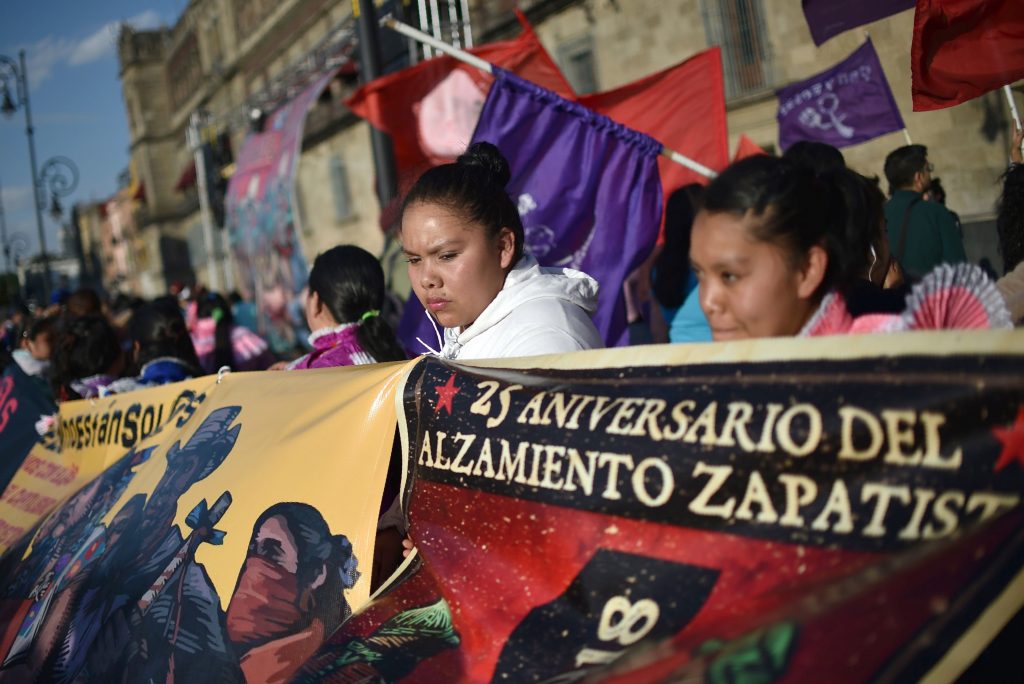(THIS ARTICLE IS MACHINE TRANSLATED by Google from Norwegian)
The lack of success of various liberation movements around the world stands for many people as great disappointments. It is disappointed revolutionary dreams that lead to the inevitable conclusion that revolution is an impossibility.
Here, John Holloway grabs us by the arm and points out a blatant mistake. In his eyes, it is clear that the revolution must fail when one identifies the concept so strongly of taking control of the state. The idea of changing society by conquering power ends with the opposite of what one has set out to achieve. Instead of becoming a step towards the abolition of power relations, the attempt at a takeover becomes an extension of the power relations into the struggle against power.
Skabelsesberetning
This unconventional approach to the subject is found by the author who is a lawyer, sociologist and philosopher. Since 1991, Holloway has lived in Mexico, where he is a professor at the Autonomous University of Puebla, and his ideological stance is Zapatism.
The problem is that the revolution is equated with control over the state.
In our context, he is the man behind the modern classic Change the World Without Taking Power, which the British publisher Pluto Press now publishes in a new and revised edition: "In the beginning was the scream," he initiates in the book's creation report. The evangelist John is terribly wrong when he writes that the word is the beginning of it all. Holloway claims it begins with the scream, and only afterwards can one put words to one's experience. The image of the reflective thinker who quietly puts his thoughts into consideration, he regards as a delusion, for all change starts with negation and dissonance, and the unarticulated cry. It is incensed by injustice found on all leaders and edges, and thus the cry is first and foremost a distance from accepting.

The next step is then the action. In the accustomed imaginary world, the confrontation with injustices can take place either through reforms or through revolution. One can, for example, seek a political mandate in a democratic way and then carry out the gradual transition to socialism, or one can force changes by taking power with more or less violent methods.
Both the path of reform and the revolutionary have failed, Holloway believes. The problem is that the revolution is equated with control of the state, and from the communist regimes in the Soviet Union and China to a series of guerrilla movements in the 1960s and 1970s, this has not led to anything but disappointing results – as the upheaval thus takes place on the conditions of the state and thus of capitalism.
Zapatist document
The anarchic path is the only right one, and that means that instead of power one must go for anti-power. In this connection, the revolutionary idea can only be preserved by changing views. Traditionally, it is said that the revolution has failed because it has been too ambitious. On the contrary, Holloway believes that one must drastically raise the level of ambition. The idea of conquering power is erroneous since the real aim of the revolution is to dissolve power – and instead create a society based on mutual recognition of human dignity.
All change starts with negation and dissonance.
From here, Holloway theorizes on the concepts of "power to" and "power over." The first is a human feeling that arises in certain contexts. A strong political meeting can put participants in a powerful state, and this will always be a social phenomenon, something collective. It can lead to a common will to say from, to refuse, and therein lies the prelude to the anti-power that is so crucial to confronting those in power over something or someone. If you seek this power instead, you get it at some point, and then you are just as far.

The book is an important Zapatista document and a thorough account of the concept of anti-power – a world that the author himself calls absurd and shadowy. It contrasts with the orthodox social sciences, since it takes the concept of power for granted. In a social science that claims to portray the world as it is, power will always be the focal point, and thus the very social science will help to cement this power, even if it pretends to be objective. In this way, the study of power ends up being a reproduction of power.
Scream
This is where the scream comes into the picture. It is unscientific and emotional, but it comes straight from the heart. And not least is the scream that makes us human. Bees live in a strict hierarchy of power, but they do not – as far as is known – scream. Of course, there are many reasons why bees do not exhibit revolutionary behavior, but the lack of screams is a notable element. The cry is something uniquely human, but it is also important to understand that it can have many causes. The scream should preferably result in a real showdown of power, and a reformulation of power, to be a real cry.






